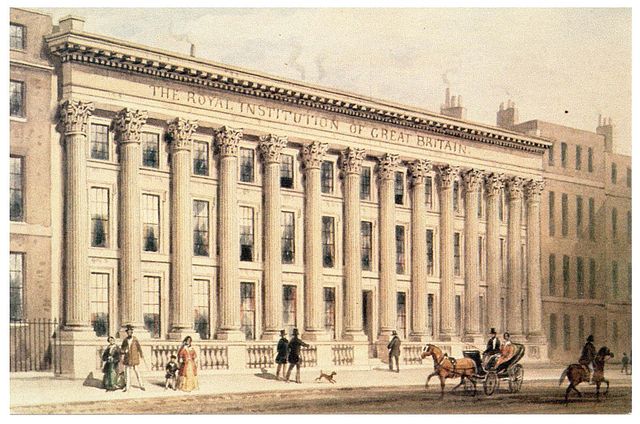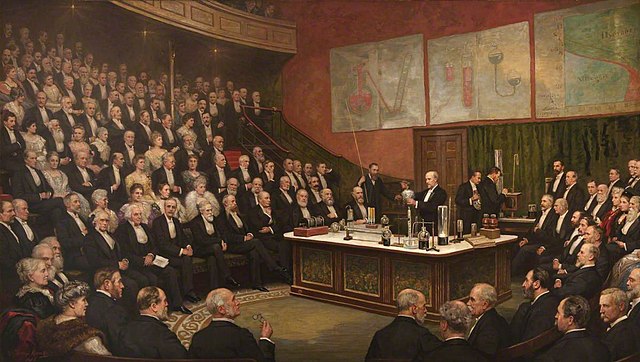Royal Institution
scientific education and research organisation based in London, United Kingdom From Wikipedia, the free encyclopedia
The Royal Institution of Great Britain (usually the Royal Institution or RI) is an organisation devoted to scientific education and research, based in London.


The Royal Institution was founded in 1799 by the leading British scientists of the age, including Henry Cavendish.[1] Its purpose was to:
- "diffuse the knowledge, and facilitate the general introduction, of useful mechanical inventions and improvements; and for teaching, by courses of philosophical lectures and experiments, the application of science to the common purposes of life".[2]
Directors of the R.I. have included some of the greatest scientists, including Humphrey Davy, Michael Faraday, Sir William Henry Bragg and Sir William Lawrence Bragg, Max Perutz and John Kendrew. Fifteen Directors have won Nobel Prizes.
Greenfield controversy
From 1998 to 8 January 2010, the Director of the Royal Institution was Baroness Susan Greenfield, but following a review,[3] the position was abolished for being "no longer affordable".[4] The Royal Institution had found itself in a financial crisis following a £22m development programme led by Greenfield, which included refurbishment of the institution's main Albemarle Street building, and the addition of a restaurant and bar with an aim to turn the venue into a "Groucho club for science". The project ended £3 million in debt.[4][5]
Greenfield subsequently announced that she would be suing for discrimination.[6] The RI's official statement stated it would "continue to deliver its main charitable objectives under the direction of chief executive officer, Chris Rofe and a talented senior team including Professor Quentin Pankhurst, the Director of the Davy Faraday Research Laboratory, Dr Gail Cardew, the Head of Programmes and Professor Frank James, Head of Collections and Heritage".[7] Baroness Greenfield later dropped the discrimination case.[8]
References
Wikiwand - on
Seamless Wikipedia browsing. On steroids.
